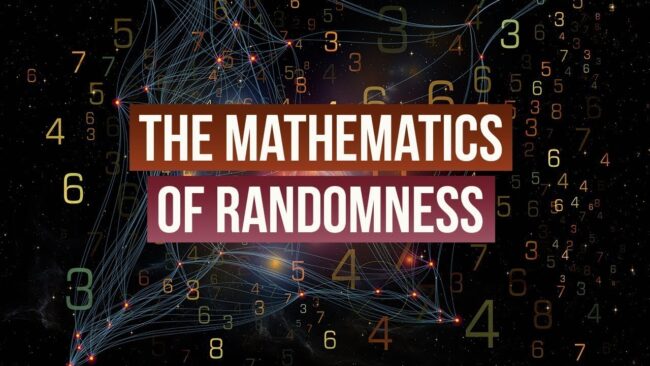Randomness is a word many people use to describe something unpredictable, accidental, or without a clear pattern. Yet, the idea of randomness runs mu
Randomness is a word many people use to describe something unpredictable, accidental, or without a clear pattern. Yet, the idea of randomness runs much deeper, touching on fundamental aspects of mathematics, physics, computer science, and everyday experiences. Understanding randomness not only helps us grasp uncertainty but also enhances our ability to model, analyze, and interact with complex systems.
In this article, we will explore what randomness really means, how it appears in nature and technology, and why it matters. We’ll also discuss how randomness is generated, measured, and applied, along with answers to common questions about this intriguing concept.
What Is Randomness?
Randomness refers to the absence of any predictable order or pattern in events or sequences. When an event is random, its outcome cannot be foreseen precisely, even if all initial conditions are known. A classic example is rolling a fair six-sided die: each face has an equal chance, and the result of each roll is uncertain.
In contrast, deterministic processes follow specific rules where outcomes are fully determined by initial conditions. Randomness introduces an element of uncertainty that makes outcomes less predictable.
True Randomness vs. Pseudo-Randomness
True Randomness
True randomness arises from natural phenomena that are inherently unpredictable. Examples include:
- Radioactive decay: The exact time a nucleus will decay cannot be predicted.
- Quantum mechanics: Particles behave probabilistically rather than deterministically.
- Thermal noise: Random fluctuations in electrical circuits.
True random events are fundamentally unpredictable and cannot be reproduced identically.
Pseudo-Randomness
Computers generate pseudo-random numbers using algorithms that simulate randomness. These sequences depend on an initial value called a seed and are deterministic. Given the same seed, the sequence is repeatable.
Though not truly random, pseudo-random numbers are sufficient for most practical uses such as simulations, games, and cryptography.
Randomness in Nature
Randomness appears in many natural processes:
- Genetic Mutation: Random changes in DNA lead to biological diversity and evolution.
- Weather Patterns: Chaotic atmospheric conditions create unpredictable weather.
- Animal Behavior: Some animals use randomness in movement or foraging to avoid predators.
- Cosmic Events: Cosmic rays and other astrophysical phenomena have random components.
The Importance of Randomness in Science
Probability and Statistics
Probability theory is the mathematical framework for studying randomness. It allows researchers to make predictions about uncertain events and analyze data. Random sampling in experiments ensures unbiased and representative results.
Physics
The discovery of quantum mechanics revealed that at a fundamental level, the universe operates probabilistically rather than deterministically. This has profound implications for how we understand reality.
Computer Science
Randomness is used in:

- Algorithms: Randomized algorithms can be faster or simpler.
- Cryptography: Random keys protect data security.
- Simulations: Modeling complex systems often requires random inputs.
Measuring Randomness
Determining if something is truly random is challenging. Common methods include:
- Statistical Tests: These analyze data sequences to find patterns or irregularities.
- Entropy: A measure of unpredictability or information content.
- Algorithmic Complexity: A random sequence cannot be compressed into a shorter description.
Randomness in Everyday Life
Randomness influences many daily activities:
- Games of Chance: Dice, cards, and lotteries rely on randomness for fairness.
- Decision Making: People use random methods like coin flips to make choices.
- Traffic Flow: Arrival times of cars at intersections often behave randomly.
- Health: Random mutations affect disease progression and treatment.
Can We Control Randomness?
While true randomness cannot be controlled, we manage and use it in various ways:
- Random Number Generators: Combining physical processes and algorithms to produce randomness.
- Random Sampling: In research, to avoid bias.
- Randomized Algorithms: To improve efficiency and fairness.
Philosophical Questions About Randomness
Randomness prompts deep questions:
- Is the universe fundamentally random or deterministic?
- Does randomness imply a lack of causality?
- What does randomness mean for free will?
These topics continue to engage scientists, philosophers, and thinkers.
Frequently Asked Questions (FAQs) About Randomness
Q1: What is the difference between randomness and chance?
Chance is the probability of an event happening, while randomness refers to the unpredictability of the event’s outcome.
Q2: Are random and chaotic the same?
No. Chaos involves deterministic systems that are highly sensitive to initial conditions, making outcomes appear random. True randomness lacks any deterministic cause.
Q3: Can computers generate truly random numbers?
Most computer-generated numbers are pseudo-random. True random numbers require physical sources like atmospheric noise.
Q4: Why is randomness important in cryptography?
Randomness ensures encryption keys are unpredictable, which is vital for security.
Q5: How is randomness measured?
Using statistical tests, entropy, and algorithmic complexity measures.
Q6: Can randomness be predicted?
No. True random events are fundamentally unpredictable.
Q7: What role does randomness play in evolution?
Random mutations provide genetic variation, essential for natural selection.
Q8: Can randomness exist without order?
Yes, randomness implies a lack of predictable order.
Q9: How do scientists create random samples?
By using random number generators or physical random processes to select data points.
Q10: Does randomness affect creativity?
Yes, randomness can introduce novel ideas and solutions.
Randomness is a powerful and pervasive concept. It shapes how we understand uncertainty, probability, and complexity across science and life. Appreciating randomness allows us to navigate unpredictability more effectively and embrace the dynamic nature of the world.
More Info: onlinemrkting




COMMENTS